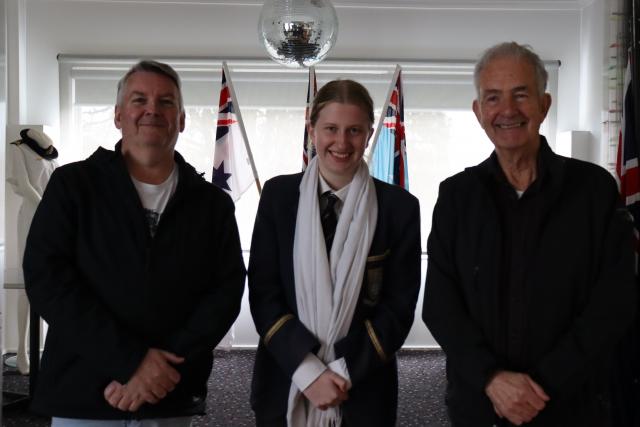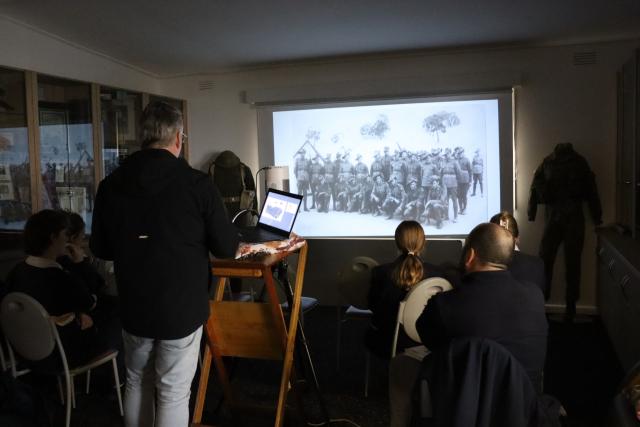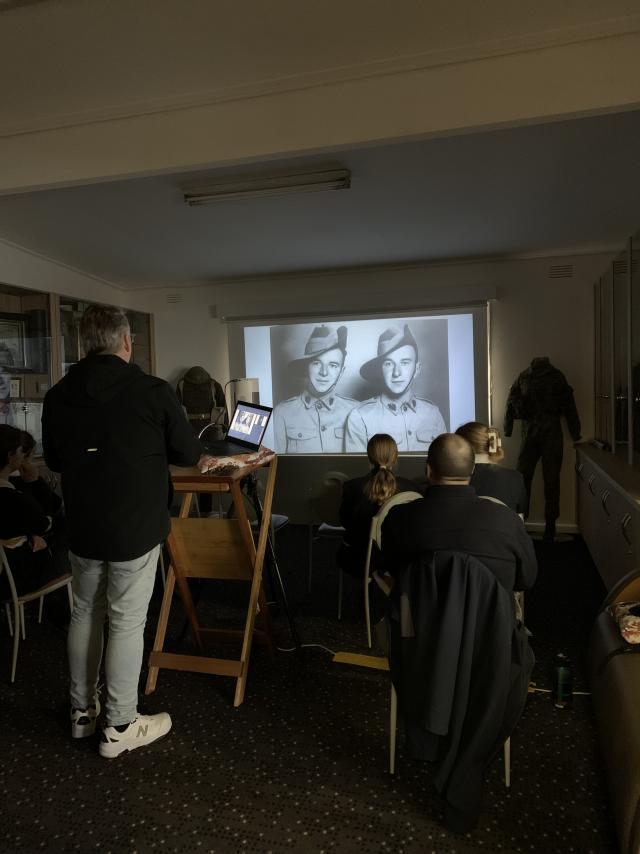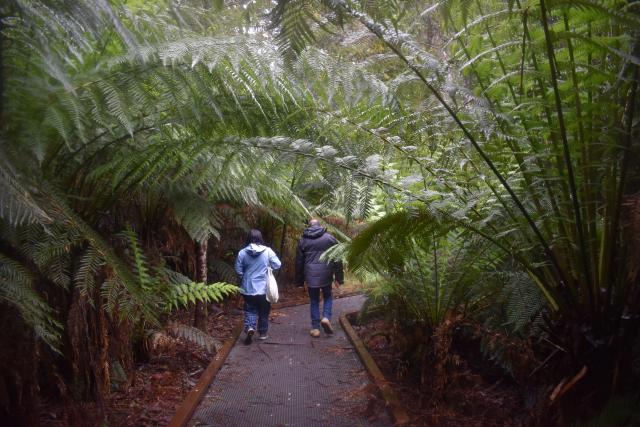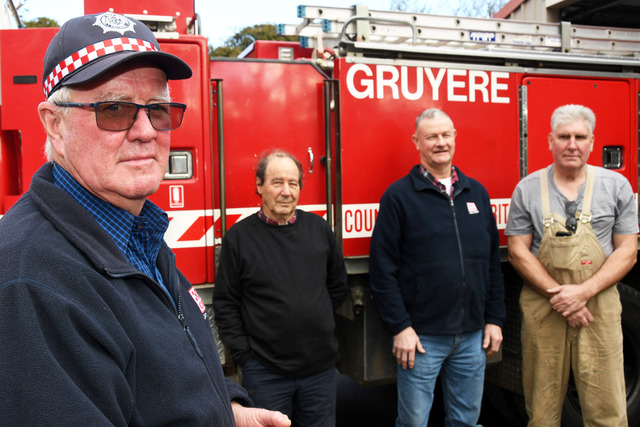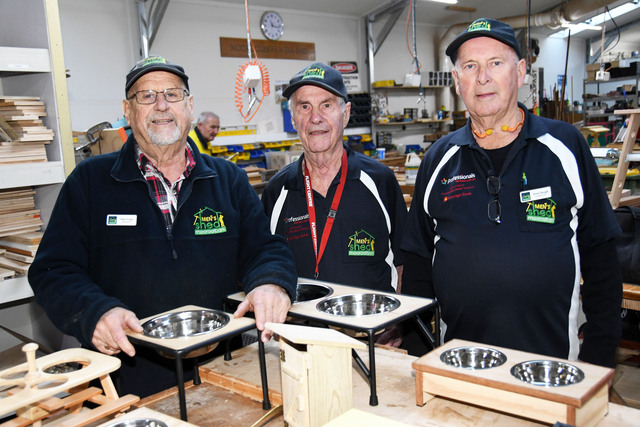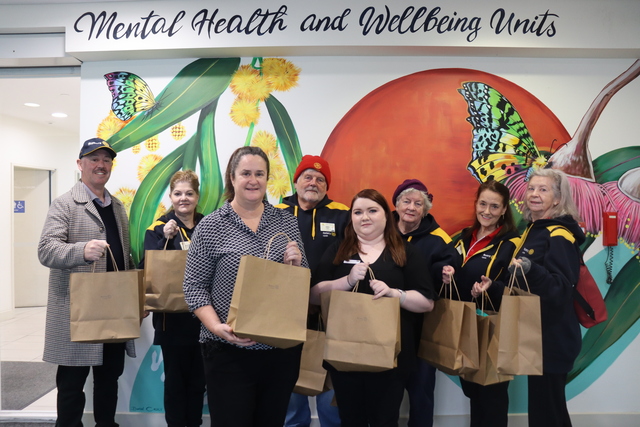Lilydale RSL held its very first educational session for local school students during the week, adding to their knowledge of Australia’s involvement in wars past.
Year 10 students from Mount Lilydale Mercy College (MLMC) had the honour of being the first school group to use the new RSL facilities and hear from local historian Anthony McAleer.
Connecting the visit to their studies of the Kokoda Campaign during World War II, Mr McAleer gave the students a local lens to look through, while expanding on the battle itself.
First breaking down the differences between the full-time army and the volunteer militia, Mr McAleer told of the history of militia groups in Lilydale from the 1800s until the 1920s.
“When the war started in 1939, Lilydale actually had its own militia unit of part-time soldiers,” he said.
“Now interestingly, this wasn’t the first time that part time militia soldiers had been set up in Lilydale. As far back as the 1890s, there was a Lilydale unit for what was known as the Victorian Mounted Rifles.”
By 1938 a new militia had formed in Lilydale known as the 24th/39th Battalion and by the time the war started there were around 45 local men serving part time in the unit.
As many members of the militia groups volunteered for service in the Australian Imperial Forces, the government brought in conscription to back fill militia numbers on home soil.
Being a militia, Mr McAleer said “they weren’t allowed to leave Australia” but as the AIF continued to fight overseas, they felt as though they had been cheated and the militia had it easy.
“By 1941 the Second AIF were all overseas, so the government decided to then expand the compulsory military training with the militia units. They made the militia full-time not just part-time, and they made it for all men aged between 19 and 35,” he said.
Later that year, the 24th and 39th Battalion were separated into their own entities, with the Australian government deciding to send the 39th on deployment to the Kokoda Trail.
“There were growing tensions with Japan. Although we hadn’t actually gone to war with Japan yet,” Mr McAleer said.
“It was then decided to make the 39th Battalion a special infantry battalion for tropical service and to then send them to New Guinea.
“The government stated that because New Guinea was then a protectorate of Australia, as it had been since the end of World War I, and it was under the control of the Australian Government that the militia could serve there as well, because it was officially Australian territory.”
Among those who served as part of the 39th Battalion were Kilsyth twin brothers Alan and Jack Smith, Lilydale’s Jack Flanagan and Geoffrey Selman, as well as Monbulk’s Jim Cowey.
In June 1942, the battalion received orders to move up the Kokoda Track beginning the many months of trying to block the Japanese from heading further south.
MLMC 20th century Australian history teacher Matthew Reilly said the Kokoda campaign forms part of the students’ look at the Australian experience during that time period.
Having the opportunity to connect with the RSL and utilise the new facilities, Mr Reilly said was a valued part of the learning process for his students.
“I can give them a really broad overview but coming here gives them that detailed knowledge that I can never give them, that the textbook won’t give them,” he said.
“The ability to see some memorabilia, I can’t do that in a classroom by myself. Coming here, making that connection, for some of them they may have never spoken to a veteran.
“Their experience with an RSL may be getting a bistro meal, they don’t often get to do the war stuff.”
Hoping to expand the program even further, Lilydale RSL president Bill Dobson said “it’s a start”, with a group of Year 11s booked in to hear about the Vietnam War from local veterans on Tuesday 22 August.
“That was the reason we started the memorabilia room, to get this going,” he said.
“The schools are showing a lot of interest, we’ve primary schools coming soon. It’s something we should really be doing, it’s part of our job to just explain a bit of history.”
For any schools interested in joining the school’s program, contact the RSL by emailing secretary@lilydalersl.com.au

